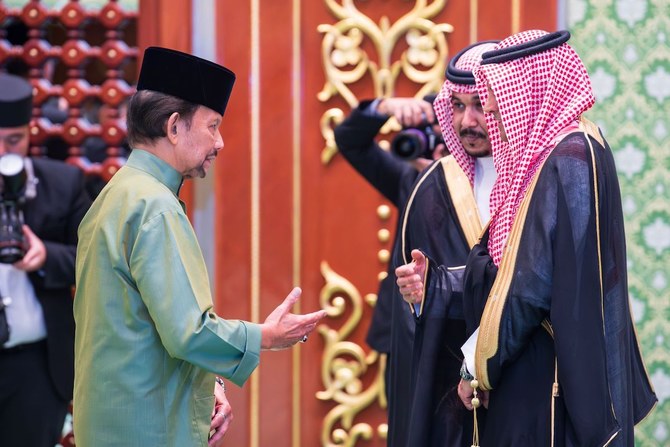JEDDAH: Saudi Arabia has marked the UN’s World Day to Combat Desertification and Drought, an awareness event held annually on June 17.
The day aims to spotlight the urgent need to address the growing challenges of land degradation, desertification and drought.
The Ministry of Environment, Water and Agriculture said the event emphasized the importance of land restoration as a driver of opportunity, the Saudi Press Agency reported.
It helps to raise awareness of the critical role healthy ecosystems play in creating jobs, enhancing food and water security and strengthening economic resilience, the ministry added.
It also highlighted Saudi Arabia’s diverse geography and climate which is home to a unique biodiversity adapted to a range of climatic conditions.
The Kingdom has launched several major environmental initiatives, most notably the Saudi Green Initiative, which aims to plant 10 billion trees over the coming decades.
The Kingdom is currently implementing 86 initiatives and programs with total investments exceeding SR705 billion ($188 billion), covering all aspects of the green economy.
These initiatives align with the core objectives of the SGI: reducing carbon emissions, expanding national afforestation, and protecting terrestrial and marine ecosystems.
More than 313,000 hectares of degraded land across the Kingdom have now been restored, and 115 million trees planted.
MEWA has also launched the Environmental Awareness Initiative, which is designed to raise environmental literacy and support Sustainable Development Goals.
The plan also emphasizes the importance of community engagement and cross-sector collaboration — from public institutions to private and non-profit entities.
As part of its efforts to monitor marine habitats, the ministry has conducted extensive field surveys along the Red Sea coast, covering over 600 coral reef sites, 200 seagrass locations and 100 mangrove areas.
According to UN data, desertification, land degradation and drought remain among the most pressing environmental challenges today, impacting up to 40 percent of the Earth’s land surface.
As the UN Decade on Ecosystem Restoration (2021–2030) reaches its midpoint, there is a critical need to accelerate restoration efforts on a global scale.
If current trends continue, the world will need to restore 1.5 billion hectares of land by 2030, creating a restoration economy valued at over $1 trillion.
The planet is currently losing healthy land at a rate equivalent to four football fields per second.
Munira Al-Hazani, president and founder of the Saudi Botanical Society, told Arab News: “Today, as we commemorate the World Day to Combat Desertification and Drought, the Saudi Botanical Society renews its steadfast commitment to safeguarding the Kingdom’s invaluable botanical heritage and tackling the critical environmental challenges that threaten our land.
“At this distinguished event, SABS had the privilege of presenting its mission through a dedicated pavilion — an inspiring botanical garden that embodies our shared commitment to environmental stewardship and sustainable solutions.
“On this critical day, I urge all sectors — governmental, private, and civil society — to unite with shared purpose and commitment.”



























